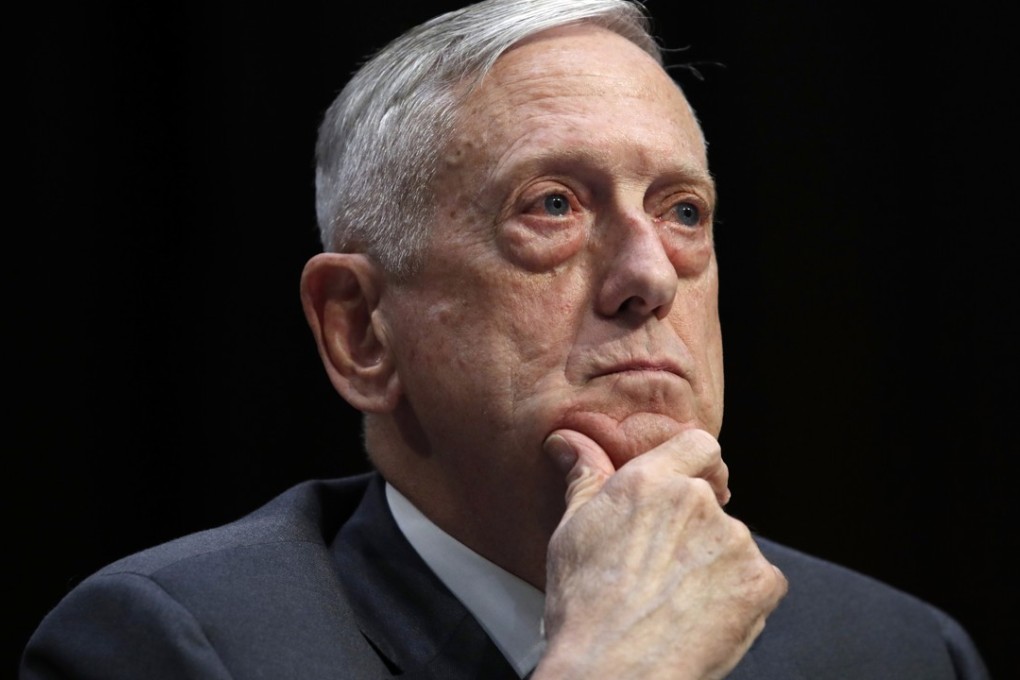US defence chief Jim Mattis visiting Beijing at ‘critical time’ for China-US military ties
Both sides recognise need to step up communication to ease tensions over South China Sea and Taiwan, analysts say

China and the United States are moving to contain military tensions and the risk of misjudgment, with US Secretary of Defence Jim Mattis heading to Beijing next week.
The visit comes after Mattis rebuked Beijing this month for its military build-up in the South China Sea amid worsening ties between the nations, and analysts say both sides recognise the need to step up communication to keep the situation from spiralling out of control.
Mattis announced on Wednesday that he would go to Beijing next week before travelling to Seoul. Pentagon spokesman Lieutenant Colonel Christopher Logan confirmed the visit, adding that details would be released on Friday.
He is making the trip after military ties between the two sides rapidly deteriorated in the past months over Taiwan and the South China Sea.
The US has said it would challenge China’s militarisation of disputed features it has built in the South China Sea, and help improve the self-defence capabilities of Taiwan, around which Beijing has recently stepped up military drills.